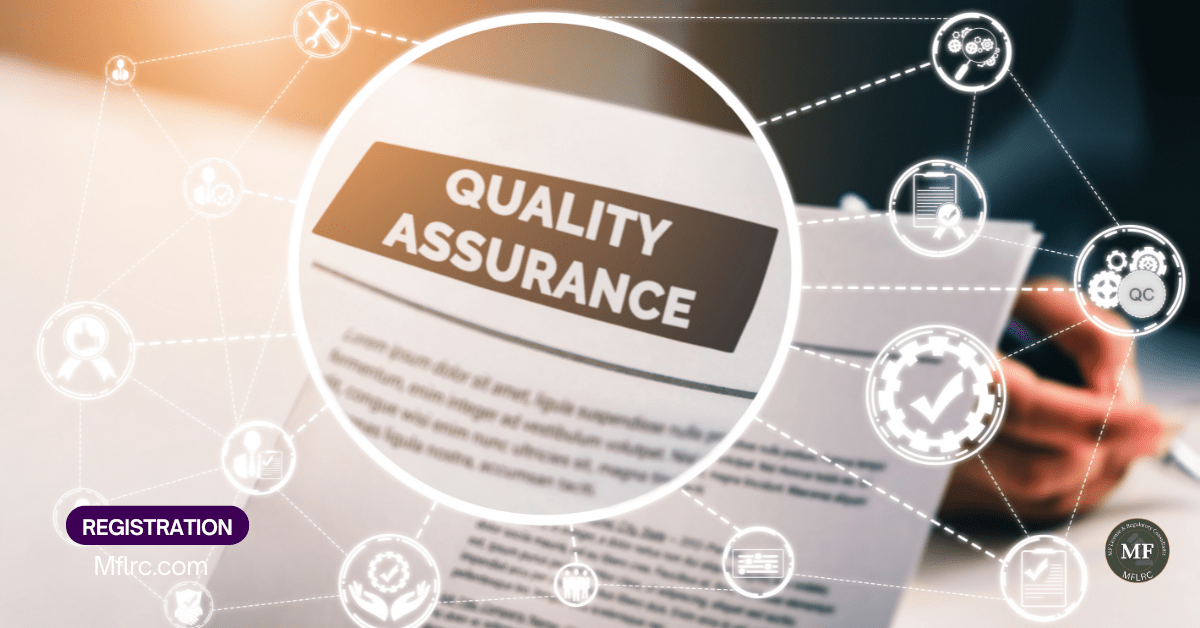
In regulated industries such as pharmaceuticals, cannabis, food, and cosmetics, the concept of quality assurance (QA) goes beyond producing a good product.
It is about proving that every step of the process meets strict standards designed to protect consumers, maintain trust, and meet legal requirements. At the center of this responsibility lies compliance.
Compliance in quality assurance is not just about passing an inspection. It is the ongoing commitment to follow established laws, industry regulations, and ethical standards while maintaining consistent quality. For businesses, compliance is both a responsibility and an opportunity to demonstrate credibility.
Compliance in QA refers to adhering to regulatory standards, industry guidelines, and internal policies that define how products and services must be designed, produced, and tested.
Where QA focuses on building quality into processes, compliance ensures that those processes meet external expectations such as:
This combination ensures that businesses are not only meeting their own standards of quality but also satisfying government authorities, trade bodies, and ultimately the end consumer.
Compliance plays a multi-layered role in QA, covering legal, operational, and reputational aspects:
Different industries follow specific frameworks to ensure compliance. Some of the most common include:
Each framework emphasizes documentation, repeatability, and clear evidence that processes are being followed correctly.
Compliance in QA looks different depending on the sector, but the goal is always the same: safety, consistency, and credibility.
Businesses that invest in compliance see both immediate and long-term benefits:
While compliance is essential, achieving it can be complex. Some challenges include:

Building compliance into daily operations requires structure and consistency. Businesses should focus on:
Many businesses underestimate how complex compliance can become as they scale. External consultants play an important role by:
MFLRC specializes in guiding businesses across cannabis, pharmaceuticals, food, cosmetics, tobacco, and natural health, helping them not only meet compliance but also strengthen operational excellence.
Compliance is often seen as a legal obligation, but it can also be a growth strategy. By treating compliance as part of business culture, companies can:
Instead of being reactive to regulations, businesses that integrate compliance into their DNA become more adaptable, resilient, and trusted.
So, what is the meaning of compliance in quality assurance? At its core, it means aligning business operations with regulatory standards, industry guidelines, and consumer expectations to deliver safe, reliable, and credible products. It is the backbone of industries like cannabis, pharmaceuticals, food, cosmetics, and natural health where consumer trust and safety are non-negotiable.
For businesses, compliance is not just about avoiding penalties; it is about building a foundation for long-term growth, international trade, and consumer trust. With the right guidance, achieving and maintaining compliance becomes a pathway to excellence.
If your organization is ready to strengthen compliance in QA, MFLRC provides specialized consultation services to guide you through GMP, EU-GMP, and GPP requirements. Reach out today to prepare your business for regulatory success and operational reliability.
| Disclaimer |
| The above blog post is provided for informational purposes only and has not been tailored to your specific circumstances. This blog post does not constitute legal advice or other professional advice and may not be relied upon as such. |

MFLRC is a one-stop shop for all of your Licensing, quality assurance and compliance needs. Our team has years of experience in the cannabis industry and are experts in all facets. We offer a variety of services that will save you time and money. Let us take the burden off your shoulders so you can focus on what’s important – growing your business.
Contact us Now!
Mussarat Fatima, President, and owner of MF Cannabis License and Regulatory Consultants has more than twenty years of experience in Quality Assurance, Quality Control, and Regulatory Affairs within the pharmaceutical, Food and Cannabis industries. She has a Master’s Degree in Food Sciences and Biochemistry; in addition to this, she also has a diploma in pharmaceutical Quality Assurance, Regulatory Affairs, and Quality Control. Also, she has completed several certifications specifically in Cannabis Quality Assurance, Regulatory Affairs, and Facility management from recognized institutes in Canada.

Written By: Mussarat Fatima
President at MF License & Regulatory Consultants
Website: https://mflrc.com/
Contact: info@mflrc.com